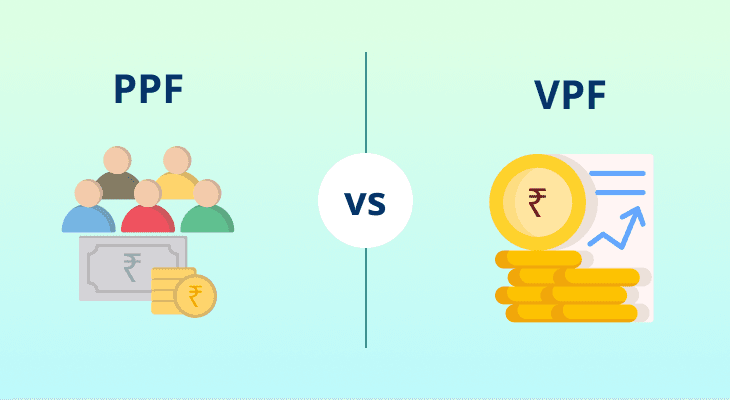
What is Senior Citizen Savings Scheme (SCSS)?
The Senior Citizen Savings Scheme (SCSS) is a government supported savings scheme tailored for individuals aged 60 years and above. It is designed to provide retirees with a secure and regular income while ensuring their financial independence post-retirement. SCSS offers an attractive combination of safety, convenience, and returns, making it one of the most preferred investment options for senior citizens in India.
Let’s understand this investment avenue, its eligibility criteria, interest rates, and tax implications to make informed decisions towards a financially secure retirement.
Key Features of SCSS
- Guaranteed Returns: SCSS provides assured returns, with the Senior Citizen Savings Scheme interest rate determined by the Ministry of Finance.
- Tenure: The initial tenure of Senior Citizen Savings Scheme is five years, offering medium-term investment stability. Investors can extend the account for an additional three years by applying within one year after maturity, allowing flexibility based on financial goals.
- Maximum Investment Limit: Individuals can invest a minimum of ₹1,000 and up to ₹30 lakh in SCSS, in multiples of ₹1,000. This range accommodates varying investment capacities, enabling retirees to allocate a substantial portion of their savings into a secure instrument.
- Premature Withdrawal: Premature closure is permitted after one year from account opening. If closed before two years, a 1.5% deduction from the principal amount is applied. After two years, a 1% deduction is levied. This feature provides liquidity while encouraging long-term savings.
- Interest Payouts: Interest is disbursed quarterly on the first working day of April, July, October, and January, facilitating regular income to meet recurring expenses. The interest is credited directly to the investor's savings account, ensuring convenience.
- Single or Joint Account: SCSS accounts can be opened individually or jointly with a spouse. In a joint account, the first depositor holds primary ownership, and both spouses can benefit from the scheme, enhancing financial security for the family.
Benefits of the Senior Citizen Savings Scheme
- Steady Income: As the Senior citizen saving scheme provides quarterly interest payouts, this ensures a stable source of income.
- Risk-Free Returns: As a government-backed scheme, it offers minimal risk.
- Tax Benefits: Contributions up to ₹1.5 lakh are eligible for tax deductions under Section 80C of the Income Tax Act.
- Flexibility: Option to extend the scheme beyond its initial tenure.
- Accessibility: SCSS accounts can be opened at designated banks and post offices across India.
How to Open a Senior Citizen Savings Scheme Account
Opening an SCSS account is a straightforward process:
- Visit your nearest post office or designated bank branch.
- Fill out the SCSS application form.
- Submit the necessary documents and the initial deposit (minimum ₹1,000, up to a maximum of ₹15 lakh).
- Upon verification, your SCSS account will be activated.
Senior Citizen Savings Scheme Eligibility
To open an SCSS account, you must meet the following eligibility criteria:
- Individuals aged 60 years or above.
- Retired individuals aged 55 to 60 years who have taken voluntary or superannuation retirement (subject to account opening within one month of receiving retirement benefits).
- NRIs and HUFs are not eligible to invest in SCSS.
Senior Citizen Saving Scheme Interest Rate and Calculation
The Senior Citizen Savings Scheme interest rate is revised quarterly by the government. As of the latest update, the SCSS interest rate stands at 8.2% per annum. Interest is calculated and paid quarterly, making it an ideal option for those seeking regular income.
Example Calculation: If you invest ₹10 lakh in SCSS at an 8.2% interest rate, the annual interest earned will be ₹82,000. This translates to a quarterly payout of ₹20,500.
How Does the Senior Citizen Savings Scheme Work?
- Account Opening: Eligible individuals can open an SCSS account at designated banks or post offices.
- Deposit: A one-time deposit is made, ranging from ₹1,000 to ₹15 lakh.
- Quarterly Interest Payments: Interest is credited quarterly to the account holder’s linked savings account.
- Maturity: The account matures after 5 years, with an option to extend for another 3 years.
- Closure or Extension: Post-maturity, the investor can choose to close the account or extend it.
Documents Required to Apply for Senior Citizen Savings Scheme
To apply for SCSS, you need the following documents:
- Filled SCSS application form.
- Age proof (e.g., Aadhaar card, PAN card, or Passport).
- Identity proof.
- Address proof.
- Recent passport-sized photographs.
- Proof of retirement (if applicable).
Tax Implications of the Senior Citizen Savings Scheme
- Tax Deduction: Investments up to ₹1.5 lakh qualify for tax deductions under Section 80C.
- Tax on Interest: Interest earned is fully taxable. If the total interest exceeds ₹50,000 in a financial year, TDS will be deducted.
- Form 15H: Senior citizens can submit Form 15H to avoid TDS if their total income is below the taxable limit.
Thus, the Senior Citizen Savings Scheme is a well-rounded investment option for retirees seeking security and regular income. With its guaranteed returns, tax benefits, and ease of access, SCSS stands out as a reliable financial tool for senior citizens.


